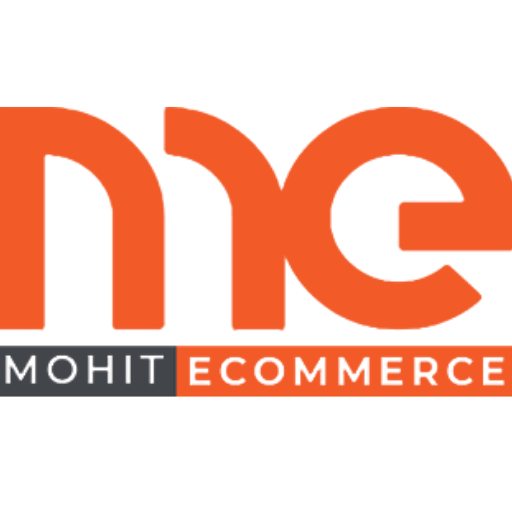To boost your online sales, leverage eCommerce tools such as customer relationship management systems for enhanced engagement, conversion rate optimization tools for improved sales funnel efficiency, and marketing automation tools to streamline your efforts. Utilizing tools such as Shopify, Mailchimp, Google Analytics, Klaviyo, and WooCommerce, you can optimize your online store performance, drive conversions, and effectively track metrics.
These tools not only streamline operations but also provide insights for adjusting your marketing strategies to maximize sales potential. Enhance your user experience, increase customer loyalty, and refine your marketing efforts through incorporating these top eCommerce tools into your strategy.
Key Takeaways
- Utilize Shopify for robust online store performance.
- Integrate Mailchimp for effective email marketing campaigns.
- Implement Google Analytics for data-driven decisions.
- Leverage Klaviyo for personalized customer communication.
- Opt for WooCommerce to streamline operations and drive conversions.
What Are eCommerce Tools?
When immersing yourself in the realm of ecommerce, it is crucial to comprehend the importance of eCommerce tools. These tools are vital for enhancing sales and driving success in your online business.
eCommerce tools encompass a wide array of software and platforms crafted to optimize various aspects of your online store. From marketing automation tools that aid in reaching a broader audience to analytics tools that offer valuable insights into customer behavior, these tools play a key role in maximizing your sales potential.
Utilizing eCommerce tools effectively, you can streamline your operations, improve the customer experience, and ultimately boost your revenue. For example, tools like email marketing software can assist you in engaging with customers more efficiently, resulting in higher conversion rates and repeat business. Moreover, tools that allow you to personalize the shopping experience for each customer can greatly enhance sales by creating a more customized and enjoyable shopping journey.
Why Are eCommerce Tools Important for Sales?

Effective utilization of eCommerce tools is a strategic necessity for maximizing sales potential in the competitive landscape of online business. These tools play an essential role in boosting sales through enhancing conversion rates and increasing customer engagement.
Incorporating eCommerce tools into your online store can streamline the shopping experience for your customers, making it simpler for them to browse, select, and purchase products. This improved user experience often leads to higher conversion rates as customers are more likely to complete their transactions.
Furthermore, eCommerce tools offer valuable insights into customer behavior and preferences, allowing you to adjust your marketing strategies and product offerings accordingly. By analyzing data generated by these tools, you can identify trends, optimize your sales funnel, and personalize the shopping experience for individual customers.
This targeted approach not only enhances customer engagement but also fosters loyalty and repeat business. In a digital marketplace where competition is intense, leveraging eCommerce tools is vital for staying ahead and driving sales growth.
Types of eCommerce Tools You Should Consider
Utilizing a diverse range of eCommerce tools is essential for optimizing your online sales strategy. When considering tools to enhance your eCommerce business, it’s vital to focus on customer relationships, ecommerce analytics tools, conversion rate optimization, and marketing automation.
To begin with, prioritizing customer relationships through tools like CRM systems can help you understand your customers better, tailor your marketing efforts, and increase loyalty. Following that, leveraging ecommerce analytics tools allows you to track and analyze customer behavior, sales trends, and website performance to make data-driven decisions.
Additionally, implementing conversion rate optimization tools can help you improve the efficiency of your sales funnel and enhance the user experience, leading to increased sales. Finally, utilizing marketing automation tools can streamline your marketing efforts, personalize communication with customers, and drive engagement.
5 Advantages of Using eCommerce Tools

When it comes to boosting your online sales, leveraging eCommerce tools can provide significant advantages. Streamlined operations can enhance efficiency, while improved customer engagement can lead to increased loyalty and repeat purchases. Moreover, the use of advanced analytics and reporting tools can offer valuable insights for informed decision-making and strategic growth.
1. Streamlined Operations
To enhance efficiency and drive growth in your online business, leveraging eCommerce tools to streamline operations is essential. Using tools that optimize processes such as inventory management, order fulfillment, and customer service, you can improve customer satisfaction and user experience to a large extent. Streamlined operations lead to faster order processing, reduced errors, and ultimately, higher conversion rates.
Automation tools can handle repetitive tasks like order processing, freeing up your time to focus on strategic initiatives that propel business growth. Moreover, integrating your eCommerce platform with tools that offer real-time analytics allows you to make data-driven decisions that enhance operational efficiency. This not only improves the overall performance of your online store but also boosts customer satisfaction by ensuring orders are processed accurately and promptly.
Investing in eCommerce tools for streamlined operations is a wise decision that can positively impact your bottom line while providing a seamless experience for your customers. Optimizing your operations paves the way for increased sales and long-term success in the competitive online marketplace.
2. Improved Customer Engagement
For enhancing customer interaction and driving increased sales in your online business, leveraging eCommerce tools is necessary. Utilizing these tools, you can improve user satisfaction significantly, leading to a boost in conversion rates and increased conversions.
Enhanced customer interaction is vital as it fosters loyalty and encourages repeat purchases. With features like personalized recommendations, live chat support, and interactive product visualization, eCommerce tools offer a tailored shopping experience that resonates with customers.
Studies have shown that businesses that actively engage with their customers experience a 63% increase in conversion rates compared to those who don’t prioritize customer interaction. Moreover, improved user satisfaction resulting from effective interaction strategies can lead to a 74% increase in customer loyalty.
These statistics highlight the direct correlation between customer interaction and sales growth. Investing in eCommerce tools that enhance customer interactions, you can create a more immersive shopping environment, ultimately driving higher sales and sustainable business growth.
3. Enhanced Analytics and Reporting
With the advent of advanced eCommerce tools, businesses now have access to enhanced analytics and reporting capabilities that provide invaluable insights into customer behavior, market trends, and sales performance. Utilizing tools like Google Analytics and Hotjar, you can track and analyze customer behaviors on your website, understand where they drop off in the sales funnel, and make data-driven decisions to improve conversion rates.
These tools offer detailed reports on key metrics such as page views, bounce rates, and average session duration, allowing you to optimize your website for better user experience and increased sales.
Monitoring conversion rates through enhanced analytics helps you identify bottlenecks in the purchasing process and implement strategies to enhance customer satisfaction and loyalty. With the power of data at your fingertips, you can tailor your marketing efforts to target specific customer segments, ultimately boosting your sales and staying ahead of market trends.
4. Better Inventory Management
As you utilize the power of eCommerce tools for your business, one significant advantage lies in the domain of improved inventory management. Efficient inventory management is vital for maintaining ideal stock levels, reducing costs, and enhancing overall performance.
Through the use of e-commerce tools customized for inventory management, you can streamline processes, monitor stock levels in real-time, and avoid stockouts or excess stock situations. These tools offer insights into which products are selling well, enabling you to make data-driven decisions on restocking and pricing strategies. Furthermore, with automated inventory management features, you can establish reorder points, handle suppliers effectively, and guarantee timely deliveries to customers.
Effective inventory management not only boosts operational efficiency but also directly impacts sales performance. By preventing stockouts, you can seize every sales opportunity and prevent revenue loss. Conversely, avoiding excess stock situations helps in cutting storage costs and reducing the risk of deadstock. Ultimately, investing in e-commerce tools for enhanced inventory management leads to a streamlined supply chain, enhanced customer satisfaction, and a substantial increase in sales.
5. Effective Marketing Automation
Maximizing your marketing efforts through effective automation is a game-changer in the world of eCommerce. Marketing automation tools streamline your processes, allowing you to reach your target audience with personalized messages at the right time. Implementing marketing automation in your eCommerce business, you can witness significant boosts in metrics such as conversion rates and customer engagement.
These tools enable you to nurture leads efficiently, segment your audience based on behavior, and send relevant content automatically. Analyzing customer data and interactions, marketing automation helps tailor your marketing strategies to individual preferences, resulting in higher conversion rates. Automated workflows save time and resources while ensuring consistent communication across multiple channels.
For eCommerce businesses, the benefits of marketing automation are clear: increased efficiency, improved targeting, and ultimately, higher revenue. Embrace the power of automation to drive your marketing efforts forward and stay ahead in the competitive online marketplace.
The 10 Best eCommerce Tools to Boost Your Sales

Looking to elevate your online sales game? Consider integrating top eCommerce tools like Shopify, Mailchimp, Google Analytics, Klaviyo, and WooCommerce into your strategy. These platforms offer robust features to enhance your online store’s performance, engage customers effectively, track key metrics, and optimize your marketing efforts. Leveraging these tools, you can streamline operations, drive conversions, and ultimately boost your sales.
1. Shopify
One of the most powerful tools available to enhance your eCommerce sales is Shopify. It is a versatile platform that caters to online businesses of all sizes, assisting them in increasing customer loyalty and driving revenue growth. Here are four key reasons why Shopify stands out among other ecommerce platforms:
- User-Friendly Interface: Shopify offers an intuitive interface that makes it simple for even beginners to set up and manage their online store efficiently.
- Customization Options: With a wide range of themes and apps, Shopify allows you to personalize your store to match your brand identity and meet your specific business needs.
- Marketing Tools: Shopify provides built-in marketing tools such as SEO features, email marketing, and social media integrations to assist you in reaching a broader audience and driving more sales.
- Secure Payment Processing: Shopify guarantees secure payment processing, giving your customers peace of mind when conducting transactions on your site.
2. Mailchimp
To further boost your eCommerce success beyond Shopify, consider integrating Mailchimp into your arsenal of sales-boosting tools. Mailchimp is a powerful email marketing platform that can enhance your online business in a significant way. Utilizing Mailchimp for targeted email campaigns, you can engage with your customers in a more personalized manner, leading to increased sales and customer loyalty.
One of the key features of Mailchimp is its customer segmentation capabilities. Dividing your customer base into specific groups based on factors like purchase history, demographics, and behavior, you can tailor your email campaigns to resonate with each segment, resulting in higher conversion rates. Moreover, Mailchimp allows you to set up drip campaigns, which are automated email sequences that nurture leads and guide them through the sales funnel.
3. Google Analytics
An essential tool in optimizing your eCommerce performance and maximizing sales is Google Analytics. Leveraging the power of Google Analytics, you can gain valuable insights into your eCommerce business and make data-driven decisions to improve your conversion rates.
Here are four key benefits of using Google Analytics for your eCommerce business:
- Advanced Data Tracking: Google Analytics provides in-depth data tracking capabilities, allowing you to monitor user behavior, track traffic sources, and analyze key metrics essential for understanding your customers.
- Conversion Rate Optimization: With Google Analytics, you can identify bottlenecks in the conversion process, track conversion rates, and implement strategies to enhance your website’s conversion performance.
- Session Recordings: By utilizing session recordings in Google Analytics, you can visually replay user sessions on your site, gaining valuable insights into user interactions, behaviors, and pain points.
- Performance Monitoring: Google Analytics enables you to track the performance of your marketing campaigns, website content, and overall eCommerce activities, helping you make informed decisions to drive sales and growth.
Harness the power of Google Analytics to propel your eCommerce business to new heights through informed strategies and data-driven optimizations.
4. Klaviyo
Harness the full potential of your eCommerce business with Klaviyo, a powerful tool designed to elevate sales and boost your online presence. Klaviyo is an all-encompassing marketing platform that provides valuable insights into customer behavior, enabling you to create targeted marketing campaigns that drive conversions. Utilizing Klaviyo’s advanced segmentation features, you can deliver personalized messages to specific customer segments, increasing engagement and ultimately boosting sales.
| Feature | Description | Benefit |
|---|---|---|
| Customer Insights | Gain deep understanding of customer behavior and preferences | Customize marketing strategies for better engagement |
| Marketing Campaigns | Create automated, targeted campaigns based on customer interactions | Enhance conversion rates through personalized content |
| Conversion Tracking | Track performance metrics of campaigns and customer interactions | Fine-tune strategies for higher conversion rates |
With Klaviyo, you can take your eCommerce marketing to the next level by harnessing data-driven insights to customize your strategies for maximum impact on your target audience.
5. WooCommerce
Ranked among the top eCommerce tools for boosting sales, WooCommerce offers an all-inclusive platform that empowers businesses to optimize their online stores for maximum performance. With WooCommerce, you can benefit from:
- Robust Ecommerce Platform: WooCommerce provides a complete set of features to create a seamless online shopping experience for your customers.
- Dynamic Product Recommendations: Utilize advanced algorithms to suggest relevant products, increasing cross-selling and upselling opportunities.
- Advanced Shopping Cart Software: Enjoy a user-friendly and efficient shopping cart system that simplifies the checkout process, reducing cart abandonment rates.
- Seamless Integrations: Integrate with various tools and services to enhance your store’s functionality and efficiency, ensuring a smooth operational flow.
6. Zendesk
Zendesk serves as an essential tool in the arsenal of successful eCommerce businesses looking to improve customer support and boost sales. Utilizing Zendesk, you can delve deep into customer experience, analyze customer journeys, gather valuable customer feedback, and gain insights into customer behavior. This extensive platform empowers you to provide exceptional support, resolve issues efficiently, and create a seamless shopping experience for your customers.
| Key Features of Zendesk | Benefits | Why It Matters |
|---|---|---|
| Multichannel Support | Seamless customer experience across different channels | Enhances customer satisfaction and loyalty |
| Customer Analytics | Obtain valuable insights into customer behavior | Assists in making informed business decisions |
| Feedback Collection | Collect and act on customer feedback efficiently | Enhances products/services based on genuine customer needs |
Integrating Zendesk into your eCommerce operations can have a significant impact on your sales by fostering stronger customer relationships and driving repeat purchases. Embracing this tool not only improves customer support but also plays a vital role in boosting your overall sales performance.
7. Buffer
To optimize your eCommerce sales and elevate your marketing strategies, integrating Buffer into your toolkit is a strategic move. Buffer is a powerful platform that can revolutionize your social media management, content marketing, analytics, and integrations. Here’s why Buffer is essential for boosting your online sales:
- Social Media Management: Buffer allows you to schedule posts across various social media platforms, ensuring consistent engagement with your audience.
- Content Marketing: With Buffer, you can easily create, curate, and share compelling content that resonates with your target market, driving traffic and conversions.
- Analytics: Gain valuable insights into your social media performance with Buffer’s detailed analytics, helping you make data-driven decisions to optimize your strategies.
- Integrations: Buffer seamlessly integrates with other tools and platforms, streamlining your marketing efforts and maximizing efficiency.
8. Ahrefs
Looking to enhance your eCommerce sales strategy with powerful analytics and SEO insights? Ahrefs is your go-to tool for in-depth competitor analysis, excellent SEO tools, and tracking your search engine rankings. With Ahrefs, you can uncover valuable data on your competitors, allowing you to identify gaps and opportunities in the market. Utilizing its SEO tools, you can optimize your website for higher search engine rankings, driving more organic traffic to your site.
Ahrefs also provides detailed insights into session properties, giving you a better understanding of user behavior on your site. This information is essential for making informed decisions to improve user experience and increase conversions. With Ahrefs, you can stay ahead of the curve through monitoring your competitors, optimizing your SEO strategy, and maximizing your online visibility. Take advantage of Ahrefs today to elevate your eCommerce game and boost your sales like never before.
9. ShipStation
Maximize your eCommerce shipping efficiency using ShipStation, one of the top tools available designed to streamline your order fulfillment process and enhance customer satisfaction. ShipStation offers a comprehensive solution managing your shipping needs, allowing you to focus on growing your online presence and improving customer interaction. Here are four key features that make ShipStation an essential tool for any ecommerce platform:
- Multi-carrier Integration: ShipStation seamlessly integrates with multiple carriers, providing you with real-time shipping rates and options to select from.
- Automation Tools: Save time and reduce errors with ShipStation’s automation features, such as order importing, label creation, and tracking updates.
- Custom Branding: Enhance your brand image by personalizing shipping labels, packing slips, and tracking pages with your logo and messaging.
- Analytics and Reporting: Gain valuable insights into your shipping performance using ShipStation’s analytics tools, allowing you to make data-driven decisions to optimize your shipping processes.
With ShipStation, you can streamline your shipping operations, enhance customer satisfaction, and drive sales growth for your business.
10. BigCommerce
Building on the theme of optimizing your ecommerce platform, BigCommerce emerges as a powerful e-commerce platform set to revolutionize your online sales strategy.
With BigCommerce as your marketing platform, you gain access to a wide array of advanced features designed to enhance the selling of digital products and physical goods alike. This robust platform offers seamless integration with various marketing tools, enabling you to create targeted campaigns and drive traffic to your online store efficiently.
BigCommerce’s user-friendly interface empowers you to customize your online store with ease, ensuring a seamless shopping experience for your customers. The platform’s scalability allows your business to grow without constraints, accommodating increased traffic and sales volumes effortlessly. Leveraging BigCommerce’s advanced features, such as built-in SEO tools and responsive design capabilities, positions your online store for success in the competitive e-commerce landscape.
Incorporating BigCommerce into your sales strategy equips you with a comprehensive e-commerce solution that maximizes your online presence and drives conversions effectively.
How MohitEcommerce Can Help You Select the Best eCommerce Tools?
When it comes to selecting the best eCommerce tools for your business, leveraging the expertise of MohitEcommerce can be a game-changer. MohitEcommerce offers a thorough approach to help you choose tools that align with your business goals and drive success. Here’s how MohitEcommerce can assist you in selecting the best eCommerce tools:
- Tailored Solutions: MohitEcommerce understands your unique needs and customizes recommendations to suit your specific requirements.
- Data-Driven Analysis: Through analyzing metrics and user data, MohitEcommerce makes sure that the selected tools will improve user experience and boost sales.
- Feature Comparison: MohitEcommerce conducts detailed feature comparisons to identify tools that offer the functions essential for your business success.
- ROI Evaluation: MohitEcommerce helps you evaluate the potential return on investment of each tool to make informed decisions that benefit your bottom line.
Integrating eCommerce Tools with Your Online Store

To enhance the functionality and efficiency of your online store, integrating eCommerce tools is a strategic move that can greatly boost your sales and overall performance. Seamlessly incorporating ecommerce tools into your online store can automate processes, improve customer experience, and drive sales growth.
Integrating tools such as customer relationship management (CRM) systems, email marketing platforms, and analytics tools can provide valuable insights, streamline operations, and help you make data-driven decisions to optimize your online store’s performance.
When integrating ecommerce tools, make sure compatibility with your existing systems and evaluate how each tool will contribute to your specific business goals. Customizing these tools to align with your brand identity and target audience can further enhance their effectiveness.
Regularly monitor and analyze the impact of these integrated tools on key performance indicators such as conversion rates, average order value, and customer retention. Strategically integrating ecommerce tools, you can create a more efficient and profitable online store that delivers a superior shopping experience and maximizes sales potential.
Evaluating the Cost of eCommerce Tools
Evaluating the cost of eCommerce tools is an essential step in optimizing your online store’s performance and ensuring a healthy return on investment. When pondering the pricing plans of different tools, keep in mind the impact they can have on your conversion rates. Here are four key factors to contemplate:
- Customer Relationship Management (CRM) Capabilities: Look for tools that offer robust CRM features to help you manage and nurture customer relationships effectively.
- Advanced Segmentation Options: Choose tools that provide advanced segmentation capabilities, allowing you to target specific customer groups with personalized marketing strategies.
- Cost vs. Value: Examine the pricing plans of the eCommerce tools in relation to the value they offer your business. Think about the long-term benefits versus the initial cost.
- ROI Potential: Calculate the potential return on investment each tool can generate based on their pricing and features. Prioritize tools that offer a high ROI potential in relation to increased sales and customer engagement. Carefully considering the cost of eCommerce tools with a focus on customer relationship management, pricing plans, advanced segmentation, and conversion rates, you can make informed decisions that drive your online store’s success.
The Role of Analytics Tools in eCommerce Success
Analytics tools play a pivotal role in driving eCommerce success through providing valuable insights into customer behavior, sales performance, and marketing effectiveness. Through leveraging analytics tools, you can analyze data such as session recordings to understand how users interact with your website. This information is essential for identifying pain points in the customer journey and optimizing the user experience to increase conversion rates.
Moreover, analytics tools enable you to track key metrics like bounce rates, average session duration, and conversion rates. When monitoring these metrics, you can identify trends, measure the impact of marketing campaigns, and make data-driven decisions to enhance your eCommerce success.
Additionally, analytics tools provide detailed reports on customer demographics, preferences, and purchasing behavior. This information is invaluable for tailoring your marketing strategies, personalizing the customer experience, and ultimately driving sales.
Email Marketing Tools for eCommerce
Understanding your customers and effectively engaging with them is essential in maximizing your eCommerce sales potential. When it comes to boosting your sales through email marketing tools, consider the following:
- Personalization is Key: Utilize email marketing tools that offer dynamic content based on customer preferences and behaviors to drive higher conversion rates.
- Automation Streamlines Processes: Choose an eCommerce marketing solution that includes automation features for sending targeted emails at the right time, nurturing leads, and re-engaging customers.
- Harness Behavioral Insights: Leverage email marketing tools that provide analytics on customer behavior to tailor your campaigns effectively and increase engagement.
- A/B Testing Improves Performance: Opt for tools that allow you to conduct A/B testing on subject lines, content, and timing to optimize your email campaigns for better results.
Social Media Marketing Tools for eCommerce

To effectively drive sales and expand your eCommerce reach, leveraging powerful Social Media Marketing Tools is paramount. Social media platforms have become a cornerstone for eCommerce businesses to engage with their audience and drive conversions. Utilizing social media marketing tools can help you streamline your efforts and maximize results.
Platforms like Hootsuite and Buffer offer a centralized marketing hub where you can schedule posts, track performance, and analyze data to optimize your strategy. Using these tools, you can tailor your content to resonate with your target audience, leading to increased engagement and ultimately higher conversion rates.
Tools like Sprout Social and HubSpot can provide valuable insights into consumer behavior, allowing you to make data-driven decisions that boost your eCommerce sales. Incorporating these social media marketing tools into your strategy, you can effectively reach a wider audience, drive traffic to your online store, and increase your conversion rates.
Customer Service Tools You Can’t Ignore
In today’s competitive eCommerce landscape, providing exceptional customer service is a key differentiator that can set your online store apart. To make sure you are delivering excellent support, consider integrating the following customer service tools into your eCommerce strategy:
- Live Chat Software: Instantly connect with customers to address inquiries and provide real-time assistance, boosting satisfaction and conversion rates.
- Helpdesk Ticketing System: Streamline customer issue resolution by efficiently managing support tickets, making sure no concerns slip through the cracks.
- Customer Feedback Tools: Gather valuable insights through surveys and feedback forms to understand customer needs better and enhance their overall experience.
- Social Media Monitoring Platforms: Monitor social channels to promptly respond to customer queries, engage with your audience, and manage your online reputation effectively.
Inventory Management Systems: Choosing the Right One
Optimizing your eCommerce operations demands a strategic approach to managing your inventory effectively. Selecting the appropriate inventory management system is essential for boosting sales and streamlining your business processes. When considering the ideal system for your online store, take into account factors such as scalability, integration capabilities, and automation features. To assist you in making an informed decision, here is a comparison table of three popular inventory management systems:
| Inventory Management System | Key Features | Integration Options |
|---|---|---|
| System A | Real-time updates | Seamless with most CRMs |
| System B | Forecasting tools | Integrates with major ecommerce platforms |
| System C | Multi-location support | Compatible with accounting software |
Assess each system based on your specific business needs to determine which one aligns best with your requirements. Investing in the appropriate inventory management system can improve efficiency, reduce errors, and ultimately boost more sales.
Benefits of Using Payment Processing Tools
With the growing shift towards online transactions, utilizing advanced payment processing tools has become essential for businesses looking to enhance their sales performance. Introducing these tools into your ecommerce business, you can benefit significantly from:
- Enhanced Security: Payment processing tools offer advanced encryption and fraud protection, ensuring secure transactions for both you and your customers.
- Increased Conversions: Streamlined checkout processes and a variety of payment options can help reduce cart abandonment rates and boost sales.
- Improved User Satisfaction: Providing a seamless payment experience can lead to higher customer satisfaction and repeat business.
- Efficient Financial Management: These tools often come with features like automated invoicing and reporting, making it easier to track transactions and manage finances effectively.
Integrating payment processing tools into your ecommerce strategy not only enhances security and efficiency but also contributes to a positive customer experience, ultimately leading to boosted sales and business growth.
SEO Tools for eCommerce: Boost Your Visibility
Considering the growing competition in the online marketplace, maximizing your ecommerce site’s visibility is crucial to staying ahead. Utilizing SEO tools tailored for ecommerce can greatly enhance your online presence.
These tools help improve your website’s ranking on search engine results pages, driving organic traffic and increasing the likelihood of conversions. Enhancing your product descriptions, meta tags, and URLs with relevant keywords can elevate your site’s visibility to potential customers actively searching for products like yours.
Furthermore, integrating SEO tools that offer insights into user behavior, such as Hotjar recordings, can provide valuable data to optimize your website further. Examining user interactions and pinpointing pain points can refine your site’s performance and improve the overall user experience, ultimately leading to higher conversion rates.
Investing in SEO tools for ecommerce is a strategic step to bolster your digital marketing efforts, enhance brand awareness, and boost sales. Effectively utilizing these tools, you can increase your visibility and outperform competitors in the crowded online marketplace.
The Importance of Security Tools in eCommerce
Enhancing the security of your ecommerce platform is not just a recommendation; it is a necessity in today’s digital landscape. When it comes to safeguarding your business and customer data, investing in security tools for your ecommerce site is essential. Here’s why:
- Protect Against Cyber Threats: Security tools help defend your ecommerce platform against cyber-attacks such as malware, phishing, and data breaches, ensuring a safe online shopping experience for your customers.
- Build Trust with Customers: By demonstrating a commitment to security, you instill trust in your customers, encouraging repeat business and fostering long-term relationships.
- Compliance with Regulations: Security tools assist in meeting regulatory requirements like GDPR and PCI DSS, avoiding hefty fines and legal issues.
- Data-Driven Decisions: Leveraging security tools provides valuable data insights on potential threats and vulnerabilities, empowering you to make informed decisions to fortify your ecommerce security infrastructure.
Freemium vs. Premium eCommerce Tools: What’s Best?
The foundation of a secure and reliable ecommerce platform rests on the tools you choose to power your online business. When it comes to selecting ecommerce tools, the choice between freemium and premium options can have a notable impact on your sales. Freemium tools offer a basic version for free with the option to upgrade for advanced features at a cost, while premium tools demand an upfront payment for access to all features.
Freemium tools can be appealing due to their initial cost savings, allowing you to test the tool before fully committing. However, premium tools often provide more comprehensive features, dedicated support, and enhanced security measures, which can ultimately result in increased sales and customer satisfaction.
To determine what’s optimal for your ecommerce business, assess your specific needs, budget, and long-term goals. Consider the scalability, customization options, and support levels offered by both freemium and premium tools to make an informed decision that will boost sales and advance your online business.
Conclusion
How can you make sure that your ecommerce business thrives and maximizes sales potential in a competitive market? Selecting the right ecommerce tools can enhance your marketing efforts, increase conversion rates, and stay ahead of the competition. Here are four key considerations to keep in mind:
- Identify Your Specific Needs: Understand your business requirements and objectives to choose tools that align with your goals.
- Focus on User Experience: Select tools that enhance the overall shopping experience for your customers, leading to higher conversion rates.
- Utilize Analytics: Opt for tools that offer detailed analytics to track the effectiveness of your marketing strategies and optimize your campaigns.
- Stay Updated: In the constantly changing landscape of ecommerce businesses, regularly evaluate and update your tools to make sure they continue to support your sales growth.







